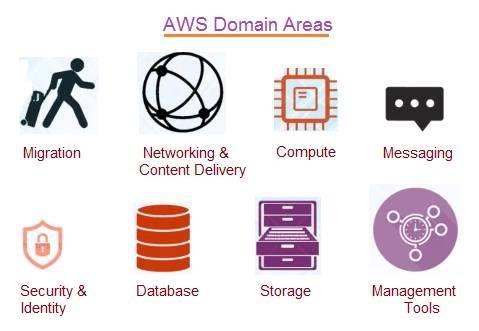Amazon Web Services (AWS): 5 Advantages and Disadvantages
Advertisement
Introduction : Cloud computing utilizes remote servers on the internet to store, manage, and process data, instead of relying on local servers or personal computers. This approach addresses the fundamental limitations of traditional website hosting by offering several advantages:
- Reduced Infrastructure Costs: Users don’t need to invest in expensive servers. Data can be stored on cloud servers.
- Scalability: Server capacity automatically adjusts based on traffic load, eliminating concerns about server scalability.
- Managed Infrastructure: Cloud providers handle server management and maintenance.
AWS, introduced by Amazon, is a prominent player in the cloud computing market. Other platforms include Azure Sphere by Microsoft, Bluemix by IBM Cloud, and various in-house solutions. AWS holds approximately 31% of the global cloud computing market share and boasts roughly 6 times the server capacity of its competitors.
What is AWS?
- It’s a secure cloud services platform providing services across various domains like migration, compute, networking, content delivery, messaging, storage, databases, security & identity, and management tools.
- A global cloud platform is used by 80% of Fortune 500 companies.
- It offers Infrastructure as a Service (IaaS), Platform as a Service (PaaS), Software as a Service (SaaS), and cloud storage platforms.

AWS offers the following services to support these various domains:
- EC2 (Elastic Compute Cloud)
- VPC (Virtual Private Cloud)
- S3 (Simple Storage Service)
- RDS (Relational Database Service)
- Route 53
- ELB (Elastic Load Balancing)
- Autoscaling
Advantages of AWS (Amazon Web Services)
Following are some of the key benefits of AWS.
- Easy to Use: Offers a straightforward sign-up process and an intuitive User Interface (UI) or Management Console. AWS services are also well-documented, making them accessible to beginners.
- Flexible Billing: Provides simple billing with dynamic options, including per-hour billing, region-specific pricing, and term-specific pricing.
- Trusted Vendor: Amazon is a reliable vendor, ensuring the stability of its services.
- Global Reach: AWS services are available globally, covering approximately 15 regions, including the US, Europe, and Asia Pacific. Each region contains multiple availability zones, with massive data centers.
- Continuous Innovation: Amazon consistently introduces new services across all domains, providing users with access to the latest technology.
- Focus on Emerging Technologies: Amazon is actively developing machine learning and SaaS (Software as a Service) products, and continuously working to reduce the costs of its services.
- Core Cloud Benefits: Like other cloud computing platforms, AWS offers limitless capacity, speed, and agility, a secure and reliable environment, and more.
Disadvantages of AWS (Amazon Web Services)
Following are some of the drawbacks or limitations of AWS.
- Resource Limits: There are limitations on resources available on Amazon EC2 and Amazon VPC consoles. However, you can request an increase.
- Security Limitations: Some restrictions exist in security features. For instance, EC-2 Classic supports a maximum of 500 security groups per instance, and each group supports a maximum of 100 permissions. EC2 VPC supports a maximum of 100 groups per VPC.
- Technical Support Costs: Technical support comes with fees that vary based on different packages, including developer, business, and enterprise options.
- Generic Cloud Computing Drawbacks: It shares the inherent disadvantages of cloud computing, such as internet dependency and security concerns.
- Steep learning curve exists due to the vast array of services and configurations.
- Vendor lock-in may occur due to deep integration with AWS-specific tools and services.
Conclusion: Amazon Web Services (AWS) is a leading cloud platform offering scalable, flexible and reliable solutions for businesses of all sizes. While it delivers numerous advantages like global reach, pay as you go pricing, and a vast service portfolio, it also comes with challenges such as complex cost management, potential vendor lock-in and a steep learning curve.
Advertisement
 RF
RF







